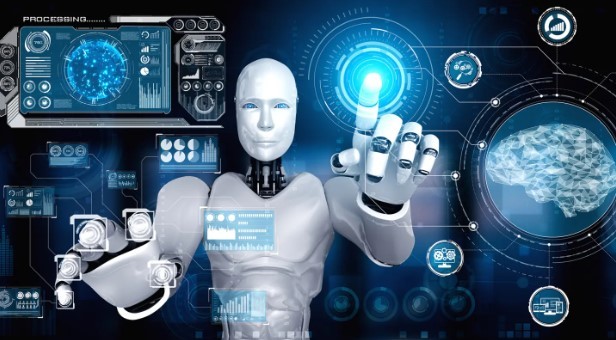Artificial Intelligence (AI) and Machine Learning (ML) have become integral parts of modern technology, influencing industries across the globe. These technologies are reshaping how businesses operate, enhancing user experiences, and driving innovation. From healthcare to finance and entertainment, AI and ML are not just buzzwords but transformative forces with far-reaching implications.
What is AI and Machine Learning?
AI refers to the simulation of human intelligence in machines that are programmed to think, learn, and solve problems. Machine Learning, a subset of AI, involves teaching machines to learn from data and improve their performance over time without explicit programming. Together, they enable computers to perform complex tasks that were once reserved for humans.
1. Enhancing Business Operations
AI and ML are streamlining business operations by automating repetitive tasks, improving decision-making, and increasing efficiency. In customer service, for example, AI-powered chatbots can handle inquiries, while ML algorithms predict customer preferences and behaviors, allowing businesses to personalize their offerings and improve customer satisfaction.
2. Revolutionizing Healthcare
AI and ML have the potential to revolutionize healthcare by improving diagnostics, personalizing treatment, and speeding up drug discovery. Machine learning models can analyze medical data to identify patterns that help doctors make more accurate diagnoses. AI is also being used to develop personalized treatment plans based on an individual’s medical history and genetic data, leading to better patient outcomes.
3. Transforming the Financial Sector
In finance, AI and ML are enhancing fraud detection, improving risk management, and automating trading strategies. Financial institutions use machine learning algorithms to analyze transaction patterns and detect anomalies that could indicate fraudulent activity. AI-driven investment tools are also changing how investors make decisions, helping them optimize their portfolios based on predictive analysis.
4. Advancing Natural Language Processing (NLP)

AI’s ability to understand and process human language, known as Natural Language Processing (NLP), is one of the most exciting developments in technology. Applications like Siri, Google Assistant, and Alexa are powered by NLP, allowing users to interact with machines through voice commands. NLP is also making strides in sentiment analysis, enabling businesses to gauge customer feedback from social media and online reviews.
5. Enabling Autonomous Systems
AI and ML are at the heart of autonomous systems, such as self-driving cars and drones. Machine learning algorithms allow these systems to learn from their environment and make real-time decisions based on data from sensors and cameras. In transportation, AI-driven systems are improving safety and efficiency by enabling vehicles to make split-second decisions and adapt to changing road conditions.
6. Enhancing Cybersecurity
As cyber threats become more sophisticated, AI and ML are playing a critical role in enhancing cybersecurity. Machine learning algorithms can detect abnormal activity within a network, identify potential vulnerabilities, and help prevent cyberattacks. AI is also used to strengthen authentication systems, making it more difficult for unauthorized users to access sensitive data.
7. Personalizing Customer Experiences
AI and ML are making a significant impact on personalization. E-commerce platforms like Amazon and Netflix use AI-driven recommendation systems to analyze user behavior and suggest products, services, or content tailored to individual preferences. This not only enhances the user experience but also boosts sales and customer loyalty.
8. Optimizing Supply Chain and Logistics
AI and ML are transforming supply chain management by improving inventory management, demand forecasting, and route optimization. Machine learning algorithms analyze historical data to predict demand, helping businesses plan inventory more efficiently. AI-driven systems also optimize delivery routes, reducing fuel consumption and improving delivery times.
9. Improving Manufacturing Processes
In manufacturing, AI and ML are being used for predictive maintenance, quality control, and production optimization. By analyzing data from sensors embedded in machinery, AI systems can predict when equipment will fail and recommend preventative maintenance. This reduces downtime and maintenance costs, improving overall productivity.
Read More : http://Top 10 Revolutionary Technologies to Transform the World
10. Driving Innovation in Research and Development
AI and ML are accelerating research and development across various industries. In fields like pharmaceuticals, AI models are being used to predict the effectiveness of new drugs before they undergo clinical trials. In engineering, AI is helping design more efficient products by analyzing large datasets and identifying patterns that human engineers might miss.

